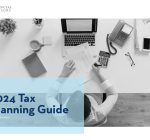The Importance of Real Estate Accounting: How to Keep Your Finances in Check
Are you a real estate accounting investor or business owner looking to succeed in the competitive market? Proper financial management is one key factor that can make or break your success. In this blog post, we’ll discuss why accurate accounting practices are crucial for staying ahead of the game in real estate. From tracking expenses and income to managing taxes and budgeting, we’ll provide clever tips and strategies to ensure your finances are always in check. So if you’re ready to take charge of your real estate accounting, read on!
What is real estate accounting?
Real estate accounting is a complex field that can help businesses keep their finances in check. It involves tracking the cost of real estate assets, liabilities, and revenues over time. By understanding how these numbers change, businesses can make informed decisions about where to invest money and how to allocate resources.
A few fundamental principles in real estate accounting are critical for any business:
- Financial statement analysis helps identify problems with the company’s finances and guides how to fix them.
- Asset management, which focuses on effectively managing the company’s real estate assets so they can generate revenue.
- Rent calculation is vital for understanding how much monthly money companies get from tenants.
Understanding real estate accounting will help businesses make sound investment decisions, stay within their budget and perform accurate Rent Estimation. By following these basic principles, businesses can ensure they do everything possible to manage their cash flow and protect their bottom line.
The importance of accurate financial records
Real estate is a booming industry, and with that comes big money. However, if you need to keep accurate financial records, you could be in trouble. Here’s what to keep an eye on when it comes to your real estate finances:
1. Make sure you’re constantly updated on your property management accounting values. This will help you stay within your budget and make intelligent changes to your property if necessary.
2. Keep good records of all expenses associated with your real estate investments, including repairs, taxes, utilities, and more. This will help you avoid any potential bills and track your overall profitability.
3. Stay on top of long-term depreciation calculations – this can significantly impact how much income you’ll generate from your properties over time. Get experts’ estimates, and ensure you’re taking all appropriate deductions!
4. always consider tenant fees when estimating monthly cash flow – they can add up quickly!
5. Be mindful of legal issues that could arise with your property – know the ins and outs of title insurance before buying or selling, for example. It could save you a lot of trouble down the line. If you want to improve your property management skills, be sure to look at our website answertenant.
Disadvantages of not having real estate accounting
When it comes to real estate, having an accountant on your team is essential. They can help you stay organized and keep your finances in check. Here are three primary disadvantages of not having an accountant:
1. Unrealized gain or loss – If you’re not keeping track of your transactions, you may not realize if you’ve made any unrealized gains or losses. This could easily lead to overspending and a lack of liquidity in your real estate portfolio.
2. Inaccurate records – Without accurate records, you may be unable to accurately report your income or expenses on tax returns or financial statements. This could lead to incorrect surcharges or penalties and make getting investment funding for your real estate ventures difficult.
3. Complications with debt payments – if you’re delinquent on debt payments, having an accountant can help ensure that the terms of your loans are met promptly, preventing any unpleasant consequences like garnishments or property seizures. There are many more on Appfolio bookkeeping.
Benefits of using real estate accounting
There are many benefits to using an accountant when it comes to your real estate business. An accountant can help you keep your finances in check and ensure all transactions are done correctly. They can also assist with creating and filing taxes and provide other crucial financial advice. Some other benefits of using an accountant include increased accuracy and efficiency when conducting business, better communication with creditors and partners, and improved decision-making ability. Therefore, if you want to run your real estate business responsibly and efficiently, it is crucial to contact a qualified accountant.





